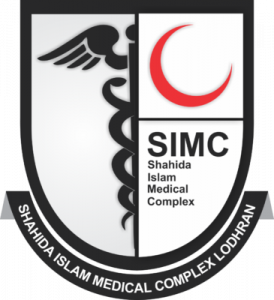College Grievance Policy
For all such offences that occur in the Institution, attached hospitals and hostels premises, head of the institution may at his discretion refer the case to the Disciplinary Committee of the institution, which shall be appointed by the Principal from time to time. This Disciplinary Committee shall have the power to interview any student or students or any member of the staff or any member of public and is empowered to send its recommendations to the head of the institution who may or may not seek ratification of these recommendations by the Academic Council.
1. The Disciplinary Committee shall consist of:
a. Four Professors including its Chairman to be nominated by the Principal; and
b. The teacher or officer in-charge of students’ affairs by whatever name called who shall be its Secretary.
c. The term of office of the members of the Discipline Committee, other than ex-officio members, shall be two years.
d. The quorum for a meeting of the Discipline Committee shall be three members including its chairman.
2. The functions of the Disciplinary Committee shall be to
a. Deal with complaints from university officials, any other complainant or on a suomoto action by the Principal / Directors.
b. Deal with all inter-institute cases of indiscipline in the college.
c. Recommend to the Principal, the fine, warning, suspension, expulsion or rustication of the faculty member, student, staff or visitor on the basis of inquiry conducted under the rules and regulations.
d. Perform such other functions as may be prescribed.
3. The Procedure of Complaint:
a. Any complaint against the faculty member, student, staff and visitor, unless specified otherwise, shall be addressed to the Principal of the College.
b. In case of suo-moto action the Vice Principal/Dean/Medical Superintendent will be the complainant.
c. The Principal may take one of the following action
i. Finding the complaint frivolous, file it.
ii. May conduct a personal hearing to ascertain facts and subsequently may reject the complaint.
iii. If Principal is certain that the complaint is genuine then refer the matter to Disciplinary committee for further action.
d. The Disciplinary committee shall adopt the following procedure:
i. Review the evidence, statements and / or other material contained in the complaint and make a preliminary endeavor to ascertain facts.
ii. Frame the charges.
iii. Issue notices to the all concerned.
iv. Interview of accused, complainant, witnesses and others if any for statements, and recording of evidence.
v. No Lawyer shall be allowed on behalf of any party.
vi. Collect evidence.
vii. Fix the responsibility.
viii. Recommend the penalties for all those found guilty according to the regulations.
ix. Compile the report under seal to the Principal office.
e. The procedure of appeal will be as follows:
i. The accused, complainant or the victim can lodge an appeal against the interim order of the Disciplinary committee, through office of Principal within seven (07) working days from the date of receiving the order.
ii. The right to appeal is for one time only
iii. If there is no appeal within this specified time the Principal can himself issue the notification of penalty or in case of major penalty may send the case to Academic Council for approval and further action.
iv. In case of an appeal, lodged against the decision of Disciplinary Committee, this appeal will be sent for review to the Academic Council.
v. The Academic Council, in this context, will admit new evidence. It may or may not also solicit response / testimony / additional information from the charged person, the victim, the complainant, the DC members, and any relevant witnesses to reach a conclusion.
vi. Subsequently academic council by a majority vote may take one of the following decisions
1. Reject the appeal and deny the request for reconsideration of Sanction(s)
2. May increase the penalty – giving the reasons
3. May reduce or otherwise limit the penalty – assigning reasons
4. Direct the Disciplinary Committee to proceed afresh, if there is new information which was not available at the time of the hearing by the disciplinary committee.
5. Academic Council’s decision will be referred back to the Disciplinary Committee through the office of Principal.
vii. The Disciplinary Committee will review the recommendations of Academic council to implement its decision and send the final recommendations to the Principal within seven working days.
viii. Before issuing his final orders, Principal may or may not call for repeat examination of accused, complainant, witnesses and any other person to satisfy himself about lawful reasonability of punishment
ix. The Principal may accept or modify the recommendations of Disciplinary Committee and issue the final order of punishment, giving reasons in writing about modifications if any in his orders.
4. Proposed Penalties against the students:
a. The Disciplinary Committee / Principal can take one or more of the following disciplinary action against the students committing an offence depending upon the severity of offence (Level-1 to Level-5 mentioned in code of conduct).
i. The student may be asked to tender an apology, verbal or written. This shall be placed on the student’s record.
ii. The student may be placed on probation for a period upto one year. If during the period of probation he /she fail to improve his/ her conduct, he/she may be expelled from the Institution.
iii. The student may be fined upto Rs. 5000/-.
iv. The student Scholarship/Grant-in-aid may be suspended or stopped.
v. The student may be suspended from the institution roll for a period determined by the head of the institution.
vi. The student may be expelled from the institution for a period determined by the head of the institution.
vii. The student may be forcibly migrated to another medical/dental institution of the province.
b. The head of institution is competent to impose/remit fines and punishments.
c. The decision of Head of Institution shall be considered as final.
5. The college will make these rules and regulations readily available to persons who may be affected by them, on demand.


